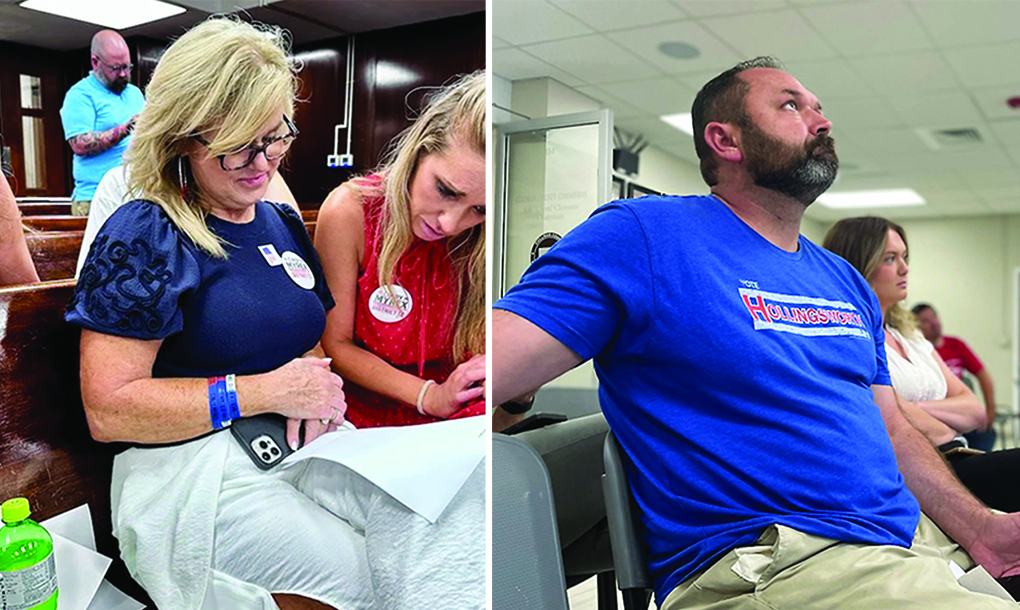Study: Women, men view care differently
Published 9:25 am Wednesday, April 16, 2008
Mt. Olive Seniors by Dixie Kuykendall
The North Jefferson News
Seniors agree their spouse will care for them, but women are not sure men can.
A study published on seniorjour-nal.com in coordination with AARP Health Care Options said men are just as likely as women to expect to be the caregiver for their spouse if their spouse becomes disabled.
Women are more likely than men to view their spouse as unprepared to take care of finances and to manage health issues should they predecease them.
Women respond that while they are better prepared to do the cooking, and one-third fear they will not be able to care for the house and yard. Women are more likely than men to see their children as the future caregivers.
Most men and women feel they are emotionally prepared to live alone if they outlive their spouse. However, when asked how prepared they believe their spouse is to live alone, more men felt that their wife could cope. Fewer women felt that their husbands would be prepared.
“This data is revealing in that it shatters some gender myths and stereotypes while it reinforces others,” reported a MetLife Mature Market Director. “The study reports that half of women feel their spouse is not fully prepared to live alone, emotionally. But, when questioned, most men believe they are emotionally prepared. It also seems that women are more confident about their own preparation to handle finances than they are about their husbands’ abilities in that regard.”
Capital news
The Senate continues in a stalemate, precluding most bills of interest to seniors from being considered on the Senate floor.
House committee passed a General Fund budget that will cut spending for some state agencies by about 11 percent. The budget does increase funding for children’s health insurance after the budget proposed by Gov. Riley had recommended giving the program the same amount it received for this year. The budget also restores funding for medicine for AIDS patients and for screening and treatment for breast cancer.
Years of political talk about removing the state sales tax on groceries turned into legislative action, but for about one-fifth of Alabamians, lower taxes on groceries could mean higher state income tax payments.
The House Government Appropriations Committee and the Senate Finance Committee approved identical constitutional amendments that would remove the state’s 4 percent sales tax on groceries.
To make up the lost revenue, the constitutional amendments would end the state income tax deduction for federal income taxes paid. The legislation would also raise the threshold at which low-income Alabamians start paying state income taxes by raising the standard deduction and personal and dependent exemptions. For a family of four, the threshold would go from $12,600 to about $20,000
The Associated Press reported that Sen. E.B. McClain has started a new push to provide state-paid health insurance for legislators and he has the support of a key Senate committee.
The Senate Finance and Taxation – General Fund Committee voted 8-5 for McClain’s bill that would have the state pay the full cost of health insurance for legislators and the lieutenant governor. Currently, legislators and the lieutenant governor can participate in the state government’s health insurance program, but they must pay the full cost.
A summary of action in the State Legislature on the 17th day of the regular session:
House: gave final approval to more than 20 routine bills extending the existence of state boards and agencies. Debated, but did not pass, a bill to prevent the governor or other authorities from seizing guns from lawful citizens during a state of emergency.
Senate: spent the day in a filibuster staged by proponents of a bingo regulatory bill for Macon County.
Dixie Kuykendall writes a weekly column on Mt. Olive seniors. She can be reached at 631-0049 or at dixiek@bellsouth.net.





